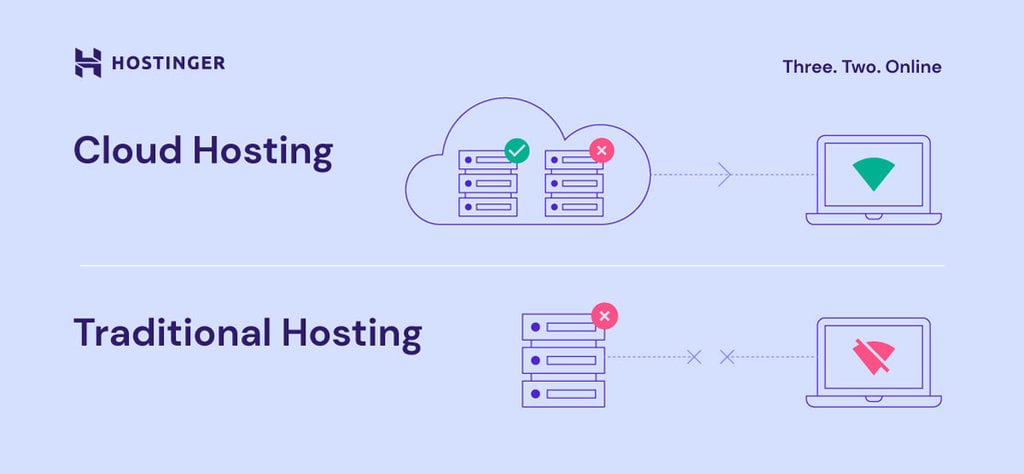Web Hosting vs Cloud Hosting: Hostinger Comparison
In the world of website hosting, two options stand out as popular choices: web hosting and cloud hosting. Both have their own set of advantages and disadvantages, making it important for website owners to choose the right hosting solution for their specific needs. In this article, we will compare web hosting and cloud hosting, focusing on Hostinger as a top provider in the industry.
Web Hosting
Web hosting is the traditional hosting service where your website is hosted on a single server along with other websites. This means that you share resources such as CPU, RAM, and storage space with other websites on the same server. Web hosting is typically a more affordable option compared to cloud hosting, making it ideal for small businesses and individuals looking to establish an online presence.
Hostinger offers various web hosting plans, including shared hosting, VPS hosting, and WordPress hosting. With Hostinger’s web hosting services, you get a user-friendly control panel, 24/7 customer support, and robust security features to protect your website from cyber threats.
One of the drawbacks of web hosting is that your website’s performance and uptime can be affected by other websites on the same server. If a neighboring website experiences a sudden surge in traffic, it could slow down your website as well. However, Hostinger’s advanced server optimization techniques help mitigate this issue, ensuring that your website runs smoothly at all times.
Cloud Hosting
Cloud hosting, on the other hand, is a more advanced hosting solution that utilizes multiple servers to host your website. This means that your website is not reliant on a single server, providing better scalability, reliability, and performance. Cloud hosting is suitable for websites that experience fluctuating traffic or require high availability and uptime guarantees.
Hostinger’s cloud hosting plans come with features such as automatic failover, load balancers, and SSD storage to ensure optimal performance and uptime for your website. With cloud hosting, you have the flexibility to scale resources up or down based on your website’s needs, making it a cost-effective solution for growing websites.
One of the key benefits of cloud hosting is its ability to handle sudden traffic spikes without affecting your website’s performance. This is achieved through the use of multiple servers working together to distribute the load, ensuring that your website remains accessible even during peak traffic periods.
Hostinger Comparison
When comparing Hostinger’s web hosting and cloud hosting services, it’s important to consider your specific hosting needs and budget. If you’re running a small website with consistent traffic, web hosting may be the more cost-effective option. However, if you expect growth in traffic or require high availability, cloud hosting is the better choice.
Hostinger offers competitive pricing for both web hosting and cloud hosting plans, making it a popular choice for website owners looking for reliable and affordable hosting solutions. Whether you choose web hosting or cloud hosting with Hostinger, you can rest assured that your website will be in good hands with their professional support team and robust infrastructure.
In conclusion, both web hosting and cloud hosting have their own advantages and disadvantages. The key is to assess your website’s specific requirements and choose the hosting solution that best meets those needs. With Hostinger’s range of hosting options, you can find the perfect fit for your website and enjoy a seamless hosting experience.
